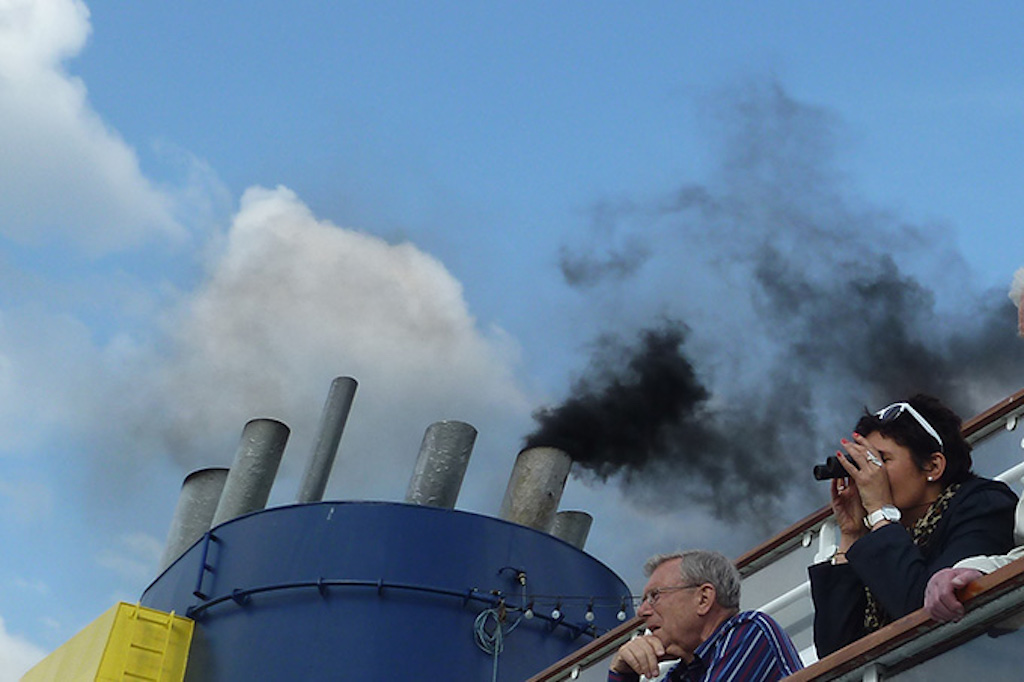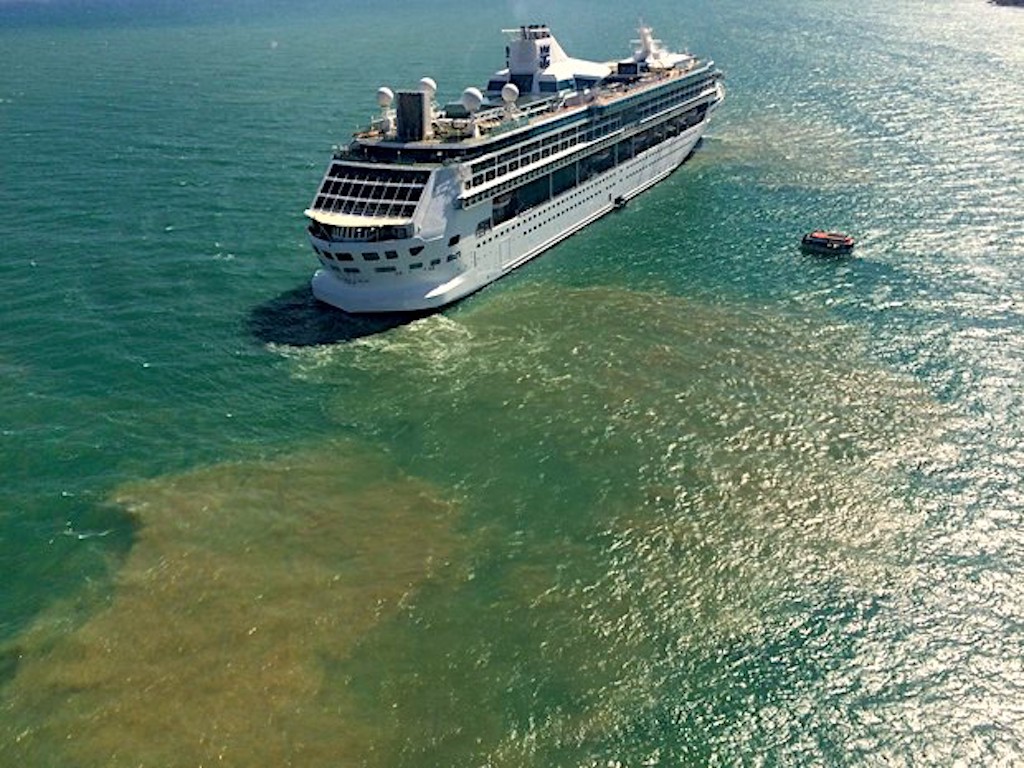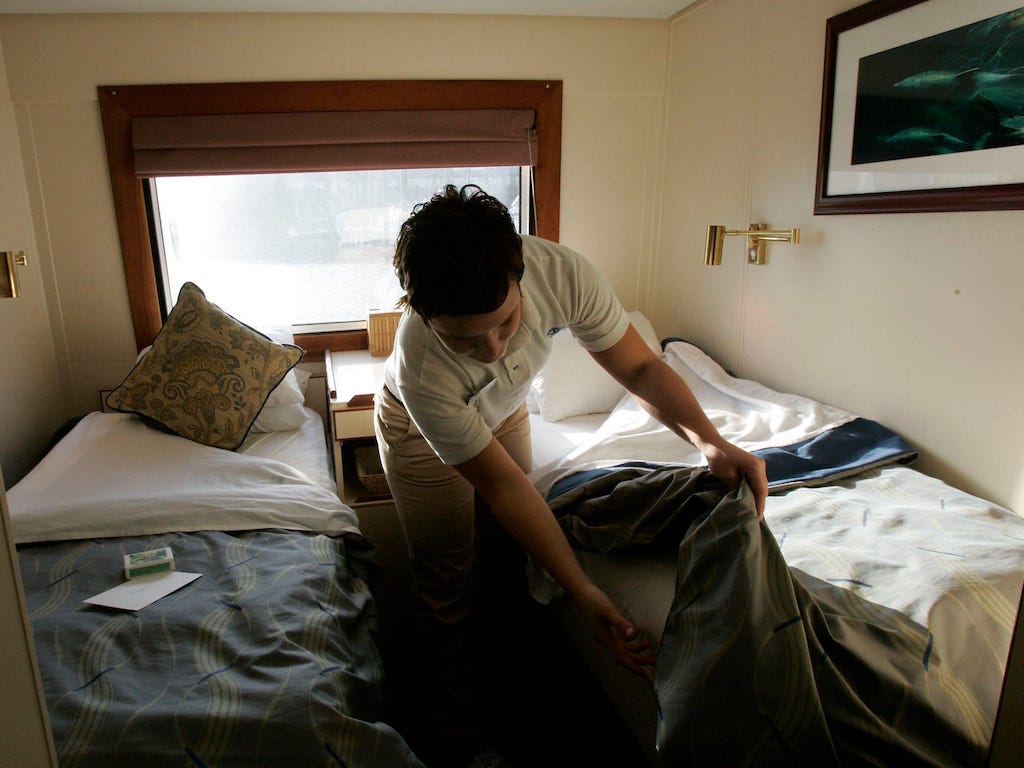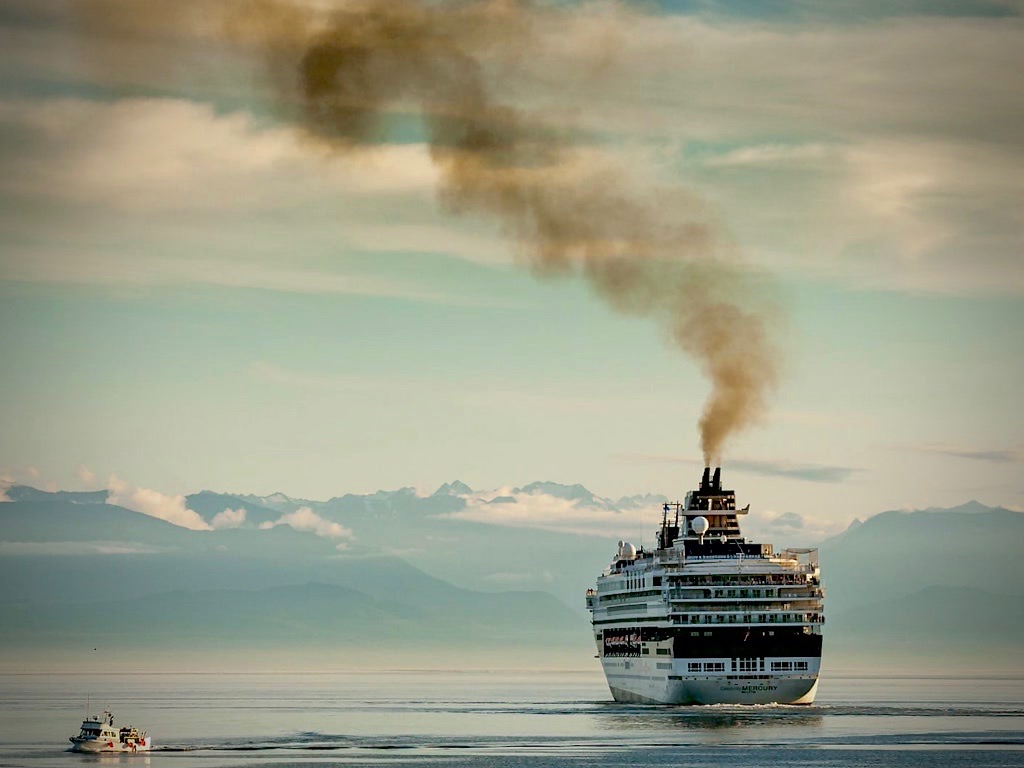5 Mins Read
Cruise ships have made headlines for all the wrong reasons during the current coronavirus pandemic – they are now seen as outbreak hotspots and incubators of the infectious virus where the “unlucky” holidaymakers onboard have been confined for weeks on end, awaiting repatriation to their home countries. But cruises were far from ideal before the pandemic struck, they have long been swarmed by a litany of ethical and environmental violations, from illegal ocean pollution to exploitation and driving the climate emergency. Covid-19 has simply exposed yet another danger of the corrupt industry that is just not worth keeping afloat once this crisis is over.
Since the coronavirus outbreak began, the public image of cruise ships has been recast into a vision of floating disease-ridden quarters where countless people have been incarcerated, eagerly awaiting their chartered flight to rescue them from their luxury holiday-turned-nightmare. As of early April, over 6,300 crew and passengers are still stranded on cruise ships. Most
The debacle that has engulfed the industry has reached new lows with passengers that have managed to leave the ships filing lawsuits against cruise companies for negligence in exposing them and to the coronavirus and the mishandlings that have taken place on board. New orders from the Centres for Disease Control and Prevention (CDC) in the United States has meant that it will be at least another 3 months until cruises will be allowed to sail from the country’s ports.
But what will happen once this crisis is all over? When cruise lines are able to sail their ships again, they will no doubt try their hardest to attract customers back with cheap deals and discounts. I hope it doesn’t work – the cruise industry has long been an ethical and environmental disaster in almost every way imaginable, and far before the pandemic began.
Cruises are ideal breeders of disease outbreaks
Just as an aside, cruises were always hotspots for harbouring infectious diseases – its close quarters are incubators for outbreaks. The CDC investigates an average of 13 outbreaks of gastrointestinal infections such as E coli on cruise ships annually. Chickenpox is another common problem. Last year in May, there was an even outbreak of measles (on a cruise ship aboard full of Scientologists).
Plus, it isn’t just due to thousands of people being confined on a floating ship that makes them dangerous places for infections to arise, but also the hygiene standards of individual operators. Multiple cruise companies have previously failed sanitation tests, including major operators Carnival, which had “brown water” discharge from showers in its medical centre.
Even the air inside cruises is unclean. In January last year, a professor examined air quality on cruise ships and found that onboard air pollution was comparable to that of highly polluted cities such as Beijing.

The environmental toll of cruise ships is massive
Now besides putting passengers and crew at a greater health risk, cruises pollute the ocean, destroy marine life, contribute enormous amounts of waste, all the while spewing out thousands of tonnes of carbon emissions that drive our climate crisis. In short, they are destroying our planet.
Long before they made headlines for being floating epicentres of Covid-19, cruises were notorious for its illegal environmental pollution. Despite being obliged to treat sewage before releasing it, cruise lines continue to illegally dump hundreds of gallons of garbage, oily and sulfurous fuel waste into the sea. Among the major culprits include the two of the largest cruising brands – Royal Caribbean and Carnival – which scored D and F scores for deliberately covering up their failure to comply with environmental regulations in a Friends of the Earth report.

Exposés about the polluting behaviour of cruise ships date back as early as 1993 – and there has been little effort on the part of cruise companies to change their ways.
The heavy reliance on fossil fuels also means that cruises are immensely carbon-intensive. According to estimates by NGO Pacific Standard, a person on a seven-day cruise alone produces almost three times the emissions as they would on land. Using a combination of diesel and gas also produces huge amounts of sulfur, causing acid rain that can wipe out forests, corrode infrastructure and harm aquatic life.
Being all about excess, cruises generate colossal amounts of food waste too. Running unlimited buffets available round-the-clock inevitably means throwing away vast amounts of unconsumed foods, including foods that are sometimes there just for decoration.
Cruises are seriously unethical
The cruise industry argues that they help to boost employment and bring revenue to tourist destinations. But these supposed advantages are only true to an extent, and more often than not, cruises fail to protect workers and damage local host communities more than they benefit.

In his book Cruise Ship Squeeze, Roger Klein documents how cruise tourism exploits local economies by investing only in terminals that benefit their interests and boycotting destinations if port charges are raised. Crew members, from officers to waiters and comedians, are all vulnerable to overwork and dangerous conditions because labour laws don’t apply on sea. Plus, cruise companies are often registered in foreign companies to avoid taxes and labour restrictions. The Royal Caribbean, for instance, is incorporated in Liberia, where the minimum wage stands between USD$4 to 6 per day.
The supposed influx of tourists that cruises bring to destinations? Local shops and businesses simply can’t reap the economic rewards – the money often stays on ships due to the all-inclusive nature of cruise accommodation. Meanwhile, heritage sites get flooded with people, with much of the potential income from tourism left at bay. Several popular port cities are already reconsidering whether they want cruises at all, from Barcelona to Venice.
So when cruise operators try again to get over this pandemic-induced hurdle, let’s not allow them to succeed. The world – our planet and the people that inhabit it – is better off without them. It’s time to ditch cruises for good.
Lead image courtesy of Shaun Cunningham / Alamy.




